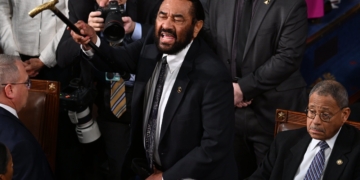The Trump administration is facing a major legal challenge over its unprecedented efforts to aggregate personal data from millions of Americans. A new class-action lawsuit argues that the administration’s actions violate federal privacy laws, breach constitutional protections, and could put sensitive personal data at risk of security breaches. Critics also warn that these measures could potentially disenfranchise eligible voters.
Filed in federal court in Washington, D.C., the lawsuit highlights concerns over a government-wide data aggregation strategy involving multiple federal agencies, including the Department of Homeland Security (DHS) and the Social Security Administration (SSA). The case underscores the growing tension between national security initiatives, administrative authority, and the privacy rights of U.S. citizens. This article details the claims, the data systems involved, and the broader implications for Americans’ privacy and voting rights.
Key Allegations in the Lawsuit
Violation of Federal Privacy Laws
Plaintiffs, including the League of Women Voters, the Electronic Privacy Information Center (EPIC), and other U.S. citizens, argue that the administration’s aggregation of personal data violates the Privacy Act. According to the lawsuit, the federal government “illegally hoarded sensitive personal information” and operated without public notice or Congressional oversight.
Misuse of the SAVE System
The lawsuit focuses on the DHS Systematic Alien Verification for Entitlements (SAVE) program, which was originally designed to verify the immigration status of foreign-born individuals. The Trump administration allegedly repurposed SAVE into a nationwide citizenship verification tool by linking it with Social Security data.
Key concerns include:
U.S. citizens being misidentified as noncitizens
Potential voter disenfranchisement
Risk of wrongful criminal investigations for lawfully voting
Compilation of Sensitive Data

Homeland Security Secretary Kristi Noem speaking at the Department of Homeland Security headquarters in January 2025.
Creation of a Government “Data Lake”
The federal government is accused of pooling Americans’ sensitive records into a central “data lake” managed by U.S. Citizenship and Immigration Services (USCIS). The database reportedly contains:
Social Security numbers
Biometric information
Tax and employment records
Medical and disability data
Plaintiffs argue that this centralized collection creates a “bullseye for hackers,” increasing the risk of identity theft and large-scale data breaches.
Security Risks and Past Incidents
Reports indicate that a member of the Department of Government Efficiency (DOGE) copied Social Security records of over 300 million Americans to a private cloud accessible to employees, exposing them to potential misuse. The lawsuit cites these incidents as evidence of inadequate safeguards for highly sensitive information.
Political and Legal Implications
Threat to Voter Rights
The repurposed SAVE system has reportedly been used by some Republican-led states to verify voter rolls, running millions of voters through the database. Plaintiffs argue that errors in this system could incorrectly flag U.S. citizens as noncitizens, disenfranchising them or exposing them to legal scrutiny.
Agencies Named in the Lawsuit
The defendants include:
Department of Homeland Security (DHS)
Social Security Administration (SSA)
Department of Justice (DOJ)
No comments were provided by the DOJ regarding the case.
FAQ: Common Questions About the Lawsuit
1. What is the SAVE system?
SAVE (Systematic Alien Verification for Entitlements) is a DHS database used to verify the immigration status of individuals. The lawsuit claims it was improperly expanded to include U.S. citizens.
2. Who filed the lawsuit?
Plaintiffs include the League of Women Voters, the Electronic Privacy Information Center (EPIC), and five unnamed U.S. citizens.
3. What personal data is at risk?
The data lake reportedly contains Social Security numbers, biometric data, tax information, employment records, and medical and disability records.
4. What are the potential consequences for voters?
Citizens could be misidentified as noncitizens, potentially leading to disenfranchisement or wrongful legal investigations.
5. What does the lawsuit seek?
Plaintiffs are asking a federal judge to halt the use of the new data aggregation tools and prevent further privacy violations.
Conclusion
The Trump administration’s efforts to aggregate personal data nationwide have sparked a significant legal battle, raising questions about privacy, data security, and voter protection. With federal agencies allegedly compiling millions of sensitive records without public oversight, the case highlights the tension between government initiatives and individual rights. As the lawsuit proceeds, Americans and policymakers will closely watch the outcome and its implications for privacy, security, and electoral integrity.













